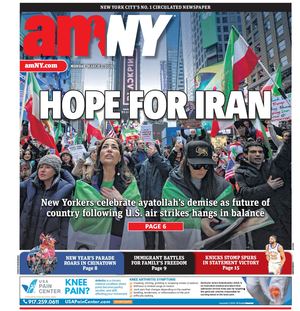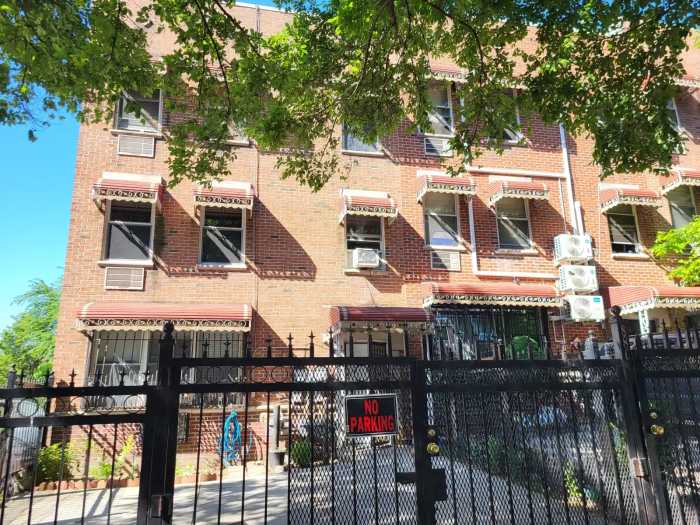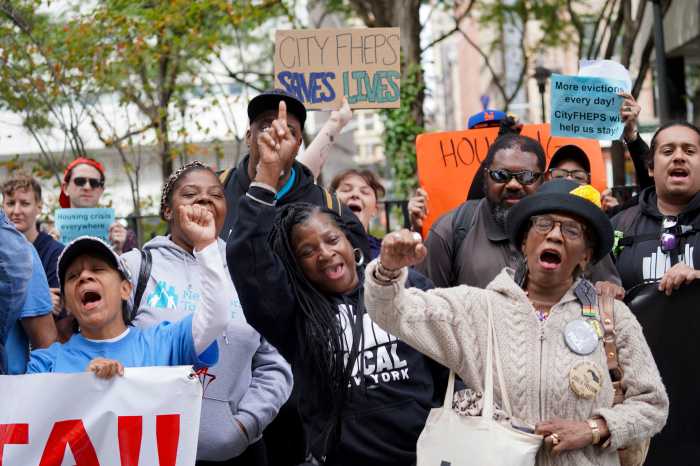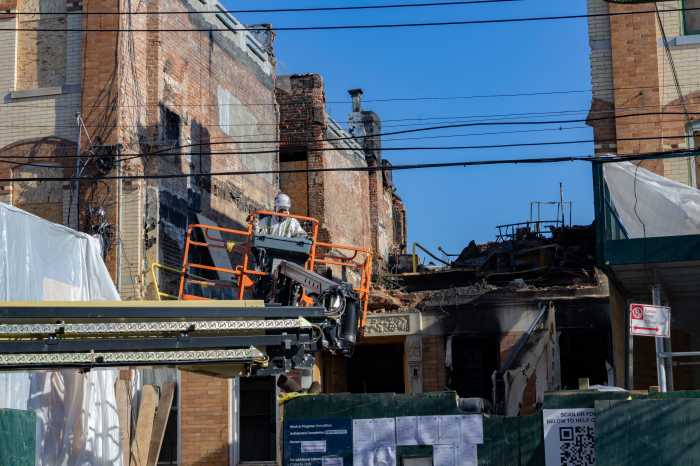An appellate court directed Mayor Eric Adams to implement a series of laws expanding access to housing vouchers on Thursday after Adams argued his administration had the authority to cancel reforms passed by the City Council.
Thursday’s ruling overturns a lower court’s determination and is the latest development in a long legal battle over several City Fighting Homelessness and Eviction Prevention Supplement — known as CityFHEPS — reforms and expansions. The ruling pertains specifically to four 2023 laws that the Adams administration had refused to enact, leading the City Council and housing justice advocates across the city to sue for their implementation.
The court ruled that “the City Council, as the legislative branch of city government, has the right to pass local laws crafting putative shelter supplements.” The order directed Adams to submit a plan to the State Office of Temporary and Disability Assistance for the legislation’s implementation.
“It is unfortunate that for two years Mayor Adams’ administration stood in the way of removing barriers to housing vouchers that keeps New Yorkers in their homes and moves them from shelters to permanent homes,” wrote Rendy Desamours, a spokesperson for the New York City Council, in a Thursday news release. “While many people experiencing housing insecurity in our city lost opportunities for help due to this obstruction and unnecessary legal proceedings, we urge the mayor to finally prioritize implementation of the reform laws to help more New Yorkers find housing stability.”
The four laws — Local Laws 99, 100, 101, and 102 — all seek to increase access to housing vouchers amid a growing housing crisis. Local Law 99 prevents the Department of Social Services from deducting utility allowance from the maximum amount of a CityFHEPS voucher, Local Law 100 removes shelter stay as a precondition to CityFHEPS eligibility, Local Law 101 removes various eligibility requirements for CityFHEPS to permit applicants at risk of facing eviction or experiencing homelessness access to vouchers, and Local Law 102 changes the eligibility for a CityFHEPS voucher from 200% of the federal poverty level to 50% of the area median income in addition to removing work and income requirements.
Liz Garcia, Adams’ first deputy press secretary, wrote in a statement to amNewYork that the Adams administration is “reviewing [its] legal options” following Thursday’s ruling.
The City Council, which joined the lawsuit shortly after its initial filing in February 2024, has argued that the administration cannot selectively decide which laws passed by the City Council it needs to enact. The council had overridden Adams’ veto of the laws in 2023 to force their implementation, leading to a battle over the separation of powers in City Hall.
The Legal Aid Society represented a group of petitioners suing the government for the lack of implementation. The plaintiffs first filed the lawsuit in February 2024. Robert Desir, a staff attorney in the Civil Law Reform Unit at Legal Aid, said in a Thursday news release that the decision is “a critical moment for thousands of New Yorkers struggling with housing insecurity.”
“This ruling reinforces the City Council’s authority to implement policies that provide much-needed relief to vulnerable residents, ensuring they can remain in and access stable housing,” Desir said. “At a time when affordability remains one of the most pressing challenges in New York City, this decision marks a significant step toward a housing system that is accessible and fair for all.”
Desir called on Adams to “act with the urgency this issue demands and to expeditiously seek State approval for these essential subsidies.”
“We further urge the State to approve the expansion promptly to prevent thousands of additional, needless evictions,” Desir said.
The CityFHEPS program began in 2019 under then-Mayor Bill de Blasio as part of a larger effort to to reduce the number of people in homeless shelters by ensuring low-income households pay no more than 30% of their income on rent. Since then, lawmakers and advocates have pushed for the program to expand, but have been met with resistance from the Adams administration, which has been hesitant to increase funding for CityFHEPS citing cost.
In fiscal year 2025, the city allocated $1.25 billion to CityFHEPS in the adopted budget. The adopted budget for fiscal year 2026 allocates $519 million — roughly half of last year’s budget — to the program, raising eyebrows among more fiscally conservative New Yorkers. The Citizens Budget Commission has called the FY2026 allocation a “continued practice of radical underbudgeting that obfuscates the City’s fiscal plans and outlook.”
Garcia wrote that the administration “has utilized CityFHEPS more than any prior administration — helping an unprecedented number of New Yorkers obtain permanent housing last year, including nearly 8,000 New Yorkers we helped avoid shelter using CityFHEPS vouchers, in addition to thousands more we helped leave shelter.”
“Adding more vouchers will only make it harder for people to leave homeless shelters,” Garcia wrote. “The affordable-housing crisis won’t be solved by making people compete for nonexistent housing; it will be solved by building more housing — which the Adams administration has done at record levels — and actually connecting people who already have vouchers to homes.”







































